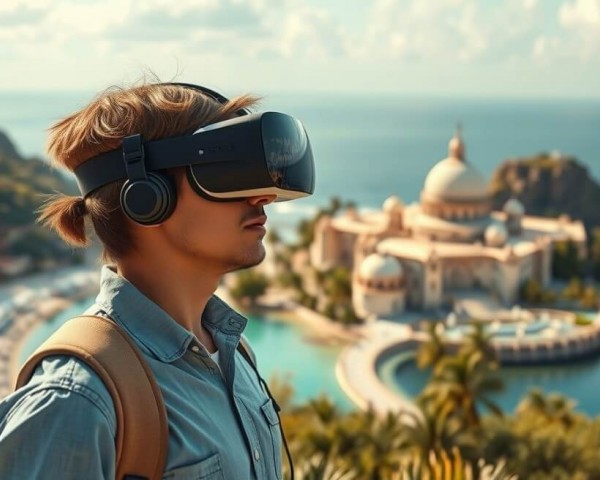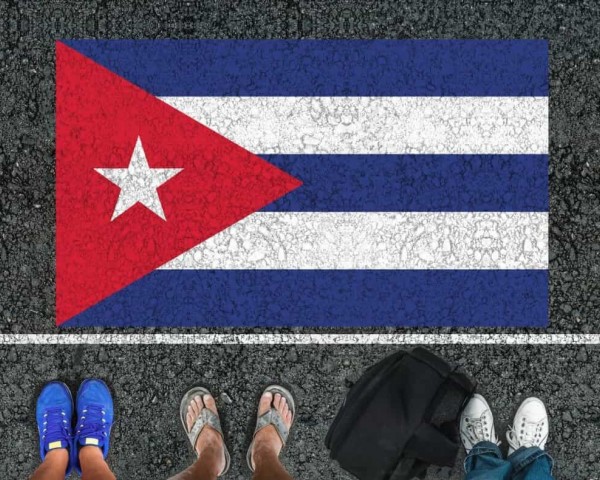The tourism sector is experiencing important transformation as a result of integration of immersive applied sciences. With the introduction of brand-new devices just like the Apple Imaginative and prescient Professional and developments in prolonged actuality (XR), together with digital actuality (VR), augmented actuality (AR), and blended actuality (MR), the way in which vacationers uncover and expertise locations is evolving dramatically.
As these applied sciences change into extra widespread, tourism manufacturers might improve buyer expertise, foster engagement, and increase loyalty. From interactive itinerary planning to digital excursions and personalised experiences, prolonged actuality is about to redefine the way forward for tourism.
Journey Planning Turns into Interactive
Historically, organizing a visit concerned navigating in depth lists of locations, evaluating inns, and consulting specialised blogs. Nevertheless, with the appearance of XR, vacationers can now immerse themselves in digital environments and create their itineraries interactively.
In collaboration with Samsung and its XR headset, Google is growing options that enable customers to visualise their journeys earlier than they embark on them. A pilot program applied in Singapore has showcased the potential of this know-how to supply personalised planning and real-time excursions via augmented actuality.
This revolutionary method undoubtedly enhances the consumer expertise and improves reserving conversion charges. By permitting potential vacationers to discover locations upfront utilizing immersive instruments, manufacturers can scale back the time between preliminary inspiration and the ultimate buy choice.
Digital Excursions: New Option to Get to Know Locations earlier than Reserving
One of the crucial important impacts of prolonged actuality on the tourism sector is the chance for digital excursions of locations, inns, and sights. Applied sciences akin to spatial video and 360-degree excursions enable vacationers to discover a location earlier than deciding.
Spatial video is predicted to revolutionize this idea by 2025. With gadgets just like the Apple Imaginative and prescient Professional, customers can expertise reasonable and immersive adventures, creating a way of presence that intently resembles actuality.
This growth represents a key benefit for firms within the tourism sector. By integrating these instruments, inns, businesses, and tour operators can construct better buyer belief, scale back uncertainty, and enhance bookings.
Excessive Personalization: Experiences Tailor-made to Every Traveler
One of the crucial revolutionary options of XR know-how is its capacity to supply extremely personalised experiences tailor-made to vacationers’ pursuits and necessities. With instruments like Apple Imaginative and prescient Professional, customers can obtain custom-made suggestions for actions, eating, and cultural experiences at their vacation spot.
The potential of this know-how additionally enhances accessibility. For instance, the partnership between Hilton and Be My Eyes demonstrates how augmented actuality can enhance journey experiences for visually impaired people. Utilizing an AI-powered app permits vacationers to obtain real-time help, which helps get rid of boundaries and make data extra accessible to everybody.
From 2D Reminiscences to Immersive 3D Experiences
One other development poised to revolutionize tourism is reworking conventional content material into three-dimensional experiences. Journey pictures and movies may be transformed into interactive recollections, enabling vacationers to relive their favourite moments in a extra immersive method.
This know-how might create new alternatives for tourism companies. From businesses providing “digital souvenirs” to inns that allow company save their experiences in XR format, the potential for innovation within the sector is huge.
Adapting Manufacturers: A Problem Forward
As prolonged actuality continues to evolve, the road between the digital and bodily worlds turns into more and more blurred. Tourism companies should start to suppose past conventional web sites and apps. Integrating real-time information—akin to interactive maps, climate data, and native occasions—into immersive experiences can improve the traveler’s expertise.
The business’s problem is evident: those that embrace these applied sciences and are prepared to innovate will achieve a aggressive edge available in the market. The yr 2025 might be pivotal, marking the transition from XR being merely a promising idea to changing into an important instrument for planning and having fun with journey.
The digital revolution in tourism is already underway, and XR will play an important position in shaping how folks discover the world within the years to come back.




